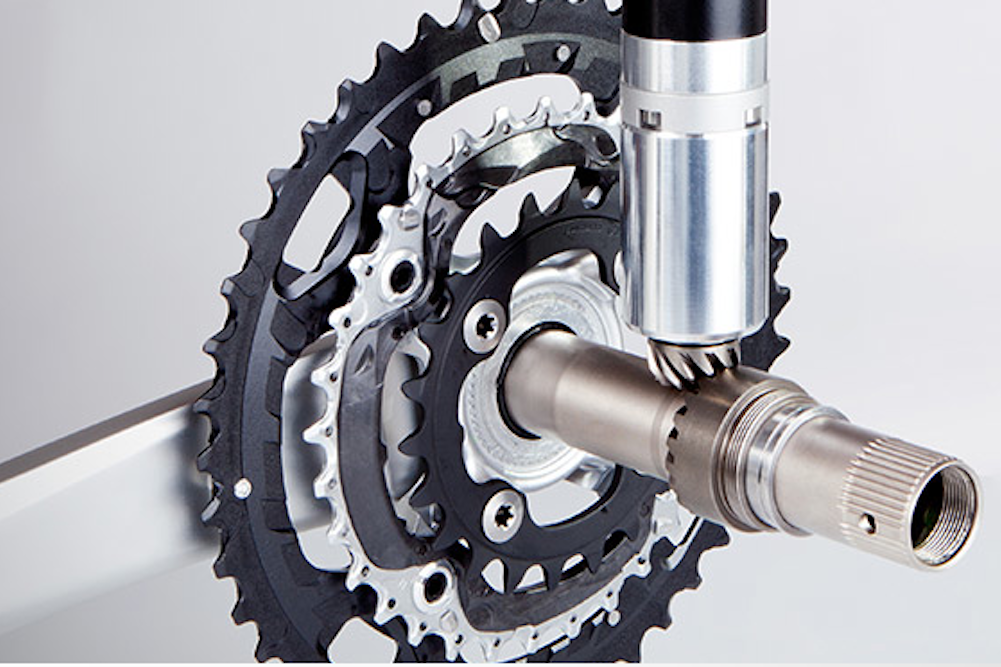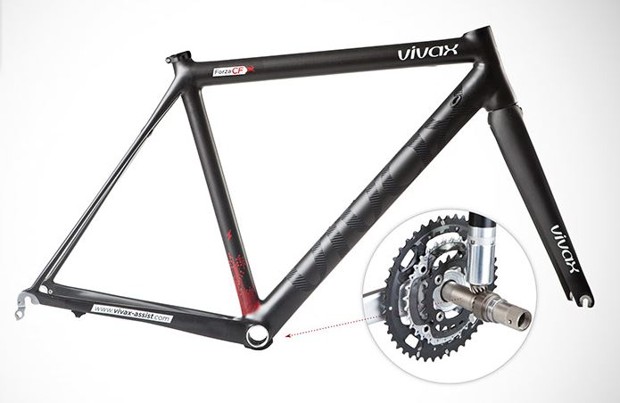Electric motor system used by banned Belgian cyclist revealed by UCI
Vivax electric motor system was used in bike belonging to Belgian cyclo-cross racer Femke Van den Driessche


Image: Vivax Assist
The latest race content, interviews, features, reviews and expert buying guides, direct to your inbox!
You are now subscribed
Your newsletter sign-up was successful
The concealed electric motor system and associated parts found in a bike belonging to Belgian racer Femke Van den Driessche at the 2016 Cyclo-cross World Championships in January has been revealed in a statement issued by the UCI on Tuesday.
Van den Driessche's bike had a Vivax Assist electric motor concealed in its seat tube, which also contained the system's battery. The button used to activate the motor was hidden underneath the bar tape and used a wireless Bluetooth system to communicate with the motor's control unit.
The UCI's Disciplinary Commission have handed a six-year suspension and a CHF 20,000 (£14,000) fine to the 19-year-old Belgian after she was found guilty of 'technological fraud'.

The Vivax system is commercially available from the Austrian company, which offers a variety of motors to fit mountain bikes, leisure bikes and road bikes.
Vivax claims that its system can provide pedalling assistance for 60-90 minutes, and up to 200 watts of power directly to the bottom bracket. When the motors is not in use, the rider can pedal normally with no added resistance. The sophisticated system costs €2,699 (£2,091), and Vivax claims it weighs under 2kg.
Vivax also produces a complete carbon-fibre road bike with the system already fitted (see video below), retailing for €5,649 (£4,375).
https://www.youtube.com/watch?v=EgOWHMRt9Qw
The latest race content, interviews, features, reviews and expert buying guides, direct to your inbox!
The UCI used a magnetic resonance scanner to detect the presence of the motor in Van den Driessche's bike, which was located in the pit area during the under-23 women's race.
The bike was made to look like a regular Wilier cyclo-cross bike. Wilier was quick to distance itself from the incident, saying that it only provides 'off-the-shelf framesets' to the Belgian team.
>>> Everything you need to know about the motorised doping scandal
"The Wilier factory does not, and never has supplied bikes or frames fitted with a concealed motor, not ever," said Wilier in a statement. "Any bikes fitted with such technology have been modified by third parties with no involvement from the Wilier factory."
Van den Driessche is the only person named in the UCI Disciplinary Hearing's statement. However, it is very likely that she would have had assistance in fitting such a specialist device.
Watch: What do the pros really think of disc brakes
Soon after the incident hit the headlines, Van den Driessche and her family claimed that the bike was a friend's, taken in error. Belgian former professional Nico Van Muylder claimed that the bike was his when confronted by media. This aspect of the case is not mentioned in the UCI disciplinary statement.
>>> Tour de France boss: Motors are no longer a rumour, they exist
Rumours of electric motors being used in professional bike races have circulated for the past five years, but Van den Driessche's was the first confirmed case. Since then, the UCI has stepped up the number of checks for concealed motors at events.
An investigation by French television’s Stade 2 and Italian newspaper Corriere della Sera claimed to find evidence of concealed motors during the Strade Bianche and Coppi e Bartali races in Italy. The investigators used thermal imaging cameras and allegedly detected unusual areas of high temperature in the lower seat-tubes of several riders' bikes.

Nigel Wynn worked as associate editor on CyclingWeekly.com, he worked almost single-handedly on the Cycling Weekly website in its early days. His passion for cycling, his writing and his creativity, as well as his hard work and dedication, were the original driving force behind the website’s success. Without him, CyclingWeekly.com would certainly not exist on the size and scale that it enjoys today. Nigel sadly passed away, following a brave battle with a cancer-related illness, in 2018. He was a highly valued colleague, and more importantly, an exceptional person to work with - his presence is sorely missed.